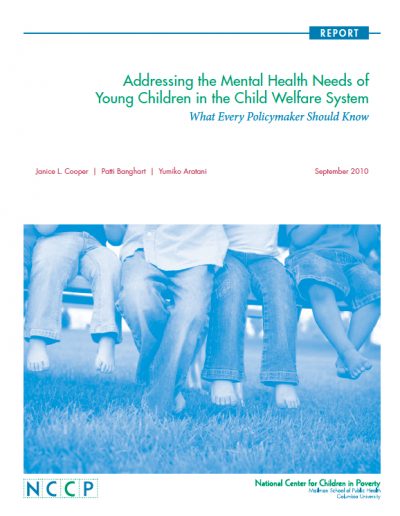Unmet Needs
Up to 42% of children in the child welfare system are under the age of 6 and in need of mental health intervention. Only 7% of children in this age group receive the services they need.

Young children — birth to age 5 — are the most likely to be involved in the child welfare system, but the least likely to receive the interventions they need to address the mental, emotional, behavioral and developmental issues they often exhibit as a result of abuse and neglect. This report examines the mental health needs of young children in the child welfare system and the barriers to accessing services to address these needs. Also included are recommendations for policymakers and providers in order to protect this vulnerable population.
Young children in the child welfare system —those under the age of 3 —are more likey to be victimized by abuse and neglect than any other age group, often resulting in mental, behavioral and emotional health issues that require intervention. Yet, these children are substantially less likely than any other age group to receive the treatment they need. While recent legislation, such as the Fostering Connections to Success and Increasing Adoptions Act of 2008, has been enacted to make these high-risk children a priority, policymakers and child welfare agencies need to focus on increasing capacity, training and support to ensure that young children receive appropriate care during these crucial years of development.
We hope you'll find value in this report. We’d love to get a little information from you, which we'll use to notify you about relevant new resources.